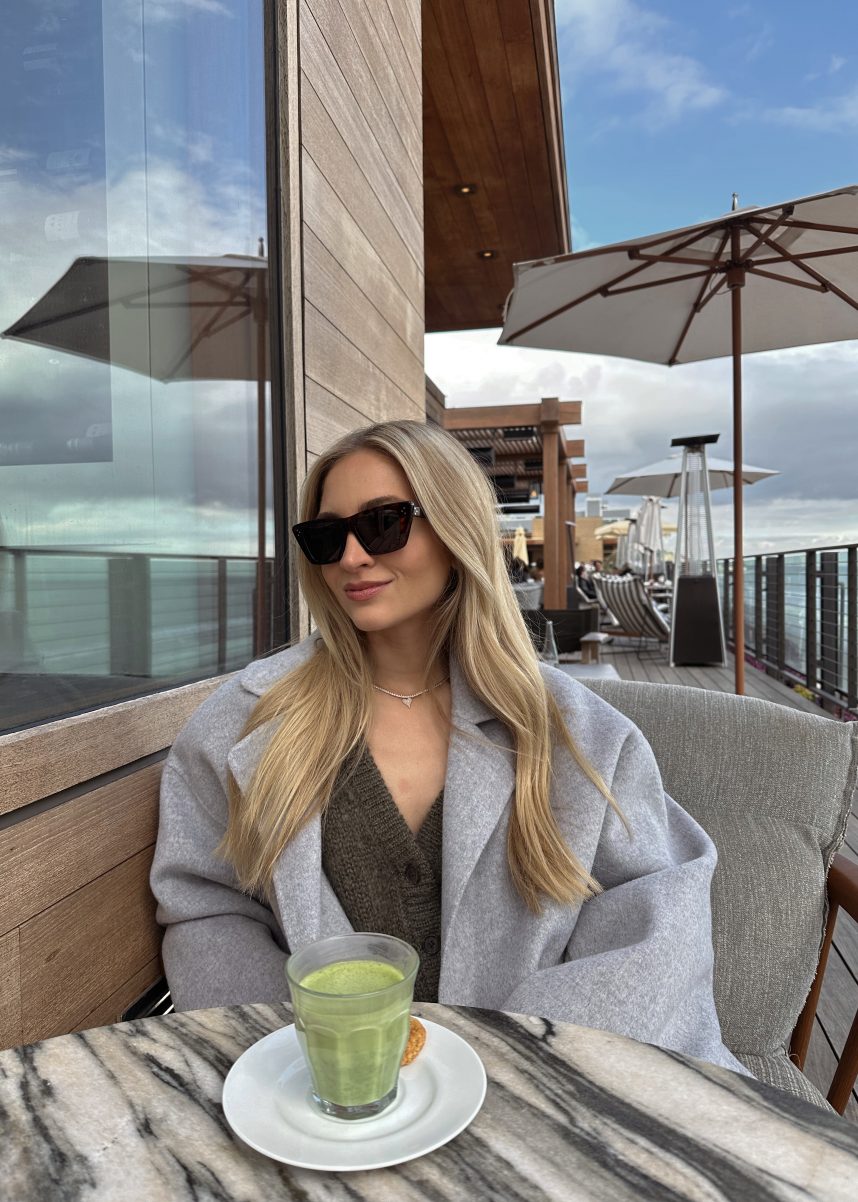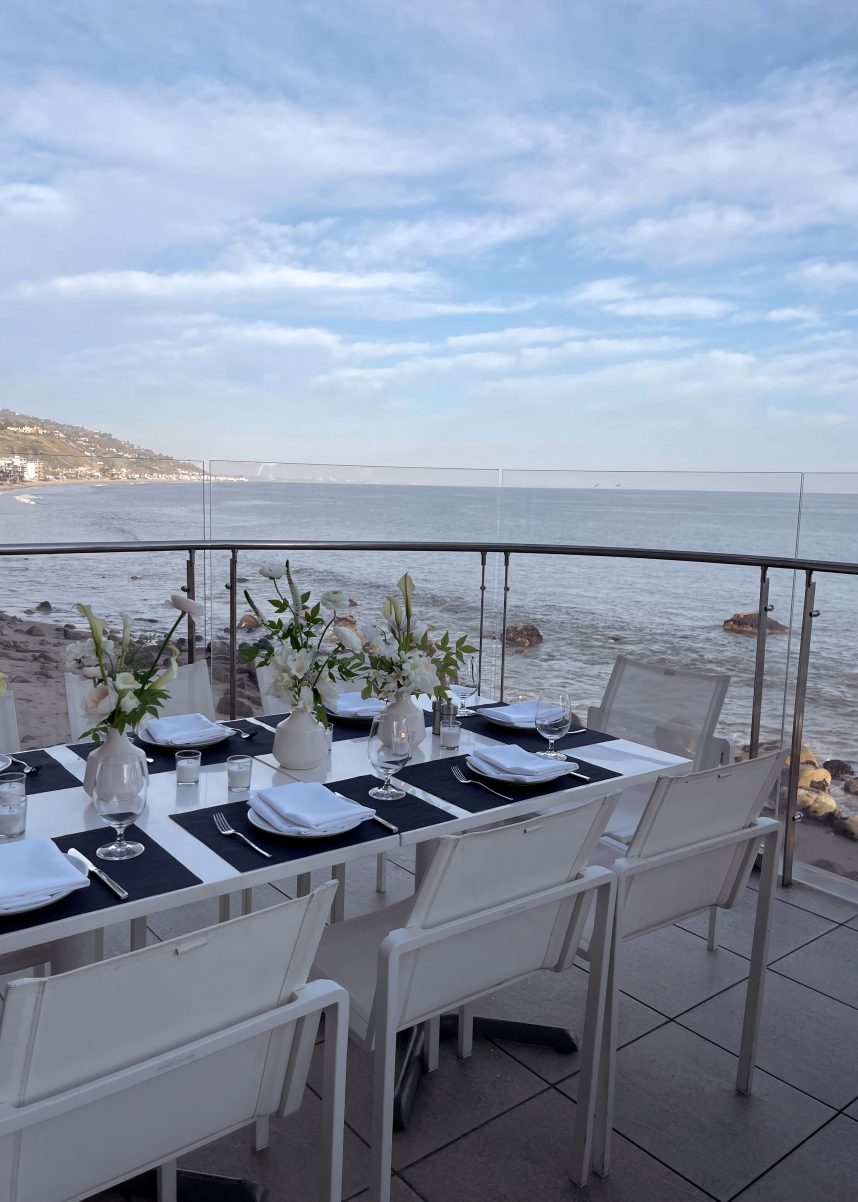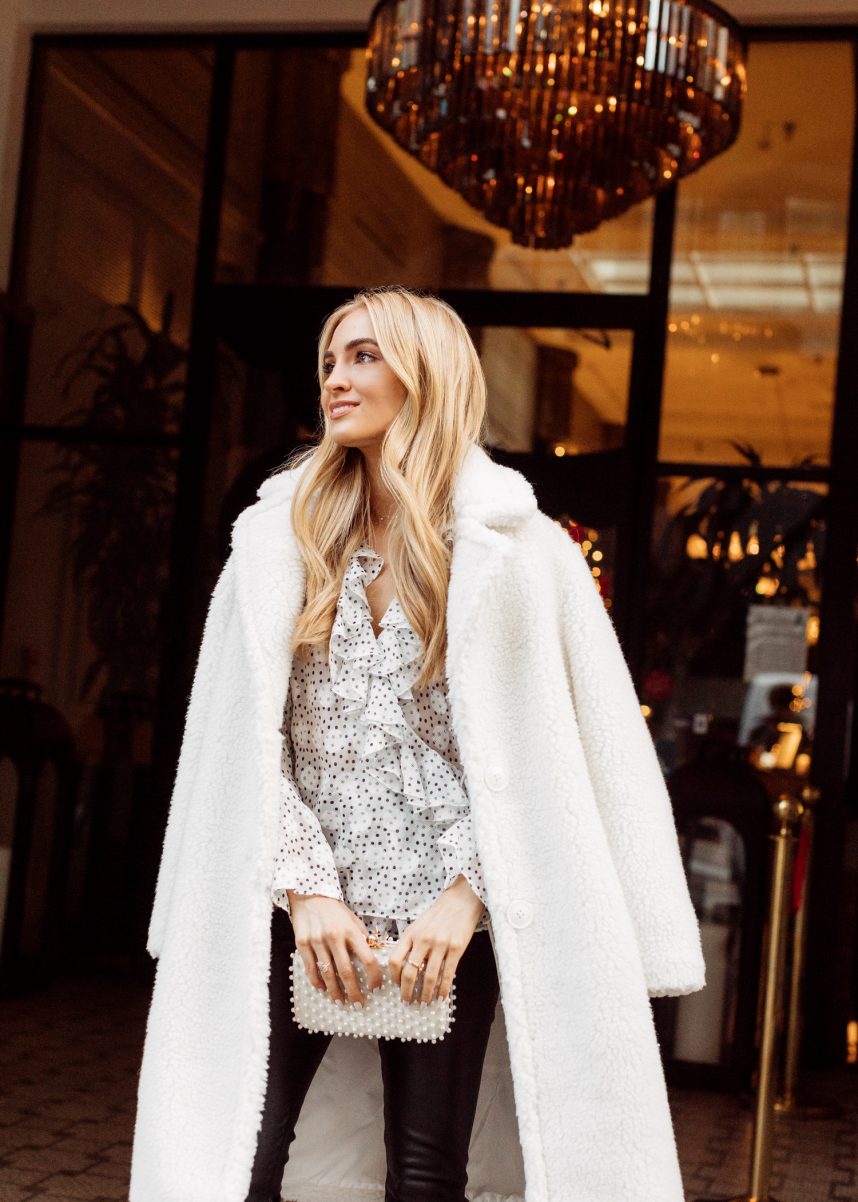It’s been a journey…
I’ve shared bits and pieces of what I’ve been going through over the last two years on Instagram and there’s been so much interest in deepening the conversation. For the last two years I’ve been diligently working on treating my hormone imbalance, and I’m finally seeing incredible results. No two people are the same, but I thought I’d share what worked for me in the hope I can help someone else.
Let’s back up – in early 2021, I started thinking about stopping my hormonal birth control, which I’d been on for nearly ten years. It was one of those things that became as routine as brushing my teeth, but one night as I popped the little blue pill out of its case, I started having a gut feeling that I should take a closer look at it. I knew in the back of my mind that it had been a while, but it was easy to put off – if something’s “working” for you, why change it? At this time I had been in a long term relationship for 6 years (I was engaged later that year) and the pill was an easy convenience, one less thing to worry about.
It’s important to note that when I started taking the pill 10 years ago, it was not for the obvious reason. I was 20, in college, and was experiencing sporadic cystic breakouts (the hormonal, annoying kind of under-the-skin bump that topical treatments don’t respond to). It was never that bad – we’re talking one or two bumps every few weeks – but it was occurring frequently enough that it frustrated me and I sought out help from a dermatologist. After treating the cysts with cortisone injections for a while (really not a sustainable solution, more for an emergency), she suggested I go on the pill, saying since the breakouts were hormonal, it would “heal” them and help get me though this phase until my hormones “balanced on their own.”
Those words were magic to my ears – who wouldn’t want an instant, quick fix?! Looking back, part of me wishes I never started and had really dove deeper into my hormones/stress levels and made some lifestyle changes first to try to help my skin, but hindsight is 20/20. I was a sophomore in college and completely consumed with school, friends, dating, and life – I just don’t think I would have taken it as seriously back then. It’s also a time in life where it’s a lot harder to stick to “routine” lifestyle changes like sleeping times, meditation, clean eating etc. I was a healthy person overall – I ate pretty well for being in college, I exercised, I was never that into drinking or partying. And my skin was generally ok – a few cysts here and there didn’t seem like reason to overhaul my routine. Going on the pill was a much more attractive approach, not to mention a convenient one, as I started dating my college boyfriend shortly after (and the thought of an accidental pregnancy was terrifying enough).
The pill did help my skin – it didn’t eliminate the cystic breakouts, but it definitely reduced them. I didn’t have any other side effects besides a few initial pounds which went to my boobs (who wouldn’t want that?) before evening out. Looking back at photos from this time, I feel like I don’t look like myself – I can see it in my face, I look swollen and bloated, just off – but at the time I didn’t notice it. On the pill, I completely stopped paying attention to my cycle. I was on Loestrin, a low estrogen dose pill, and my period vanished – I had no clue when it should or would have occurred. Now, I find it sad that women have such little education around their cycles, ovulation, and fertility – I knew nothing about it (I think there may have been one measly afternoon in middle school when a teacher rolled out the television on a cart and played the “educational sex video” amidst a giggling, embarrassed class but that was it.) In college, I couldn’t describe to you what “ovulating” even meant. All I knew was that a) I was mostly protected from pregnancy and b) I didn’t get a period, which my doctor said was normal.
(Before I get any DM’s debating the pill’s value: it is important to note that this post is NOT a commentary on if the pill is “good” or “bad.” Like anything, it comes with pros and cons. It was obviously an incredibly significant medical breakthrough in women’s lives in the 1950’s – enabling a new generation of women to be educated, have careers, plan their families and futures, and shifting the power dynamic between genders from what was previously solely a “men at work, women at home” status quo. It allowed women to stand in control and own their sexuality in a way that hadn’t existed (although today, it begs the question – why is the responsibility to have safe sex up to the woman? A topic for another day) I’m also aware the pill can help reduce risk of ovarian cancer, and manages severe cramps. I absolutely think it should be made available to women at their will, without government intervention. I just think it’s important to know what the pill does to the body, as I think girls really see it as something as simple as popping a vitamin, and are unaware of the side effects and major changes it can produce to the body with years of use (and potentially its impacts on fertility – it’s hotly debated, but I personally believe it does impact it). Non-biased education about the pill’s effects would help women make better choices about if and when to take it, when to stop it, and what the other options are.)
Ok so, fast forward to 2021.
My longtime OBGYN (who delivered me!) was retiring, so I switched to a new one, who I absolutely loved from our first meeting (the amazing Dr. Shamsah Amersi in Santa Monica). At our first appointment, she suggested with my 30th birthday approaching, it would be a good time to take a look at my hormones and fertility. She gently suggested that considering that I was in a healthy relationship (where I planned to have children eventually) I might consider stopping the pill to let my body detox and rebalance and using natural cycle planning instead (combined with another method). She explained that I had the luxury of time to do this. I liked the idea of doing it at my leisure, instead of waiting until I was ready for kids and being met with any surprises. I’d watched a few friends struggle with infertility in their early 30’s, or get off the pill to get pregnant, then need to take progesterone supplements (causing severe acne) and a host of other issues. One of my friends dealing with infertility said to me she wished she had gotten off the pill earlier and figured out her situation – that sealed the deal.
At the end of my next pill pack, I stopped.
I was worried about changes in my skin, so Dr. Amersi suggested I take a supplement (Designs for Health’s “Femguard”) to help ease the transition, and recommended I reduce dairy intake as I came off the pill (a manageable 70/30 approach, not cold turkey). What I love about her is that she strikes a middle balance between Eastern and Western medicine. Her practice is rooted and guided by Western science, but she believes in holistic approaches and understands the massive effects that lifestyle changes have on the body. She spent time talking to me about my lifestyle, making sure I was sleeping well, managing stress, meditating and overall just happy (she follows me on Instagram so she always jokes she knows what I’m eating 24/7).
I was SO SCARED of my body completely going haywire! I was worried my face would erupt in breakouts, I’d have crazy mood swings, and God knows what else. To my surprise, none of this happened. I was shocked when like clockwork, two weeks after stopping the pill, I ovulated (I used the pee sticks to tell) and then my period returned. After 10 years you can imagine how weird it felt to see a flash of bright red and need to get out a tampon – it was a foreign feeling; I felt alien. I experienced cramps, stomach aches, the whole lot. I canceled my plans and laid on the couch. As much as it was annoying, I also felt immense gratitude and relief for my body doing what it was supposed to do.
Unfortunately, my first couple periods were the only ones that arrived on time. From the third one onward, they started spacing out – instead of the “normal” range of 28-35 days, my periods were coming at 38, 40, 46+ days.. and a couple months, not at all. I was peeing on the ovulation sticks from day 9 onward of my cycle and noticed I wasn’t always ovulating either.
I did a hormone blood panel and an ultrasound of my ovaries with Dr. Amersi and we found that my levels were all over the place – my progesterone was low, my AMH unusually high for my age (which would seem a good thing, as this number reflects the ability to produce eggs, but abnormal). During the ultrasound, as we looked at the screen together, she explained that my “follicles” were all uniform in size, resembling a “pearl necklace,” which is indicative of PCOS (polycystic ovary syndrome). You want the follicles to be varying sizes, as that is indicative of which of them is releasing an egg that month (ovulating).. hence her concern that I wasn’t ovulating monthly.
Dr. Amersi explained to me that PCOS is a poorly named “umbrella term” that can mean anything abnormal about a period – I didn’t literally have cysts. I also didn’t have a lot of the traditional PCOS symptoms like weight gain and cystic acne. However, my low progesterone, unreliable periods, and abnormal ultrasound was concern enough.
She explained that some of the readjustment off the pill just takes time – my ovaries had basically been “asleep” for 10 years, their function masked by the pill. She reassured me that with my continued lifestyle focuses (healthy eating, meditation/stress management, the supplement, and TIME) plus one more thing – acupuncture – I could see changes in my bloodwork and periods. There were more aggressive treatment options, like a progesterone supplement, but since I was doing this whole thing at my leisure (not to get pregnant) we decided to take a natural approach with 6 months of acupuncture before reevaluating.
Dr. Amersi referred me to Dr. Mao at TAO of Wellness for acupuncture. Dr. Mao and his brother, Dr. Dao, are both somewhat of a legend in Los Angeles and known for their focus on fertility and success in helping women to get pregnant. I showed my bloodwork to Dr. Mao and we started weekly sessions. If you’re unfamiliar, acupuncture is basically where you lay on a table with tiny needles placed strategically in specific points on the body, which can signal the body to do different things. In my case Dr. Mao placed them mostly on my stomach and abdomen to signal to the ovaries. I also usually have them in my feet, hands, and sometimes head – it’s always different depending on where I am in my cycle. During the sessions that were right before my expected ovulation time, Dr. Mao sometimes did “electroacupuncture” where needles are stimulated by low electric current (it looks like little tabs connected to wires). It felt like a faint little tapping/pulse on my skin.
Initially I found it a bit odd to lay there on the table under heat lamps, and I struggled to fully relax. I had a fear that if I shifted a little to the left or right the needles would move, so I felt stuck. That fear went away pretty quickly (and the needles are placed so superficially). Now, even though I never fall asleep, I can feel my body sinking in the bed and a feeling of calm washing over me. The 30 minutes go by quickly and I leave feeling grounded.
I won’t keep you reading forever – but after 6 months of weekly acupuncture, consistently taking my supplement and focusing on my healthy lifestyle – Dr. Amersi retested my hormones and we did another ultrasound. To my shock and awe, my hormone levels were all the completely normal range, and my ultrasound was visually normal – my follicles were varying sizes, signaling that I was ovulating normally. My periods are still further apart – usually between 35-40 days, which Dr. Mao explained to me is not necessarily bad but does mean you have less chances to get pregnant within one year, so I am continuing my acupuncture for another few months with the goal to bring them closer together.
I can’t say exactly how much acupuncture contributed to my body rebalancing versus simply time and other factors (by the time my hormones normalized I’d been off the pill nearly 2 years) but I believe acupuncture was hugely significant and can’t recommend it enough.
I do want to note one thing, which is the impact of meditation on this process. I’ve been doing TM (transcendental meditation) for 10 years (a blog for another time). My parents have both practiced it for 50+ years (it’s actually how they met in the first place – my mom was a TM teacher in her early 20’s, and my dad met her through the TM community). The effects of TM on the body are researched, studied and proven to reduce stress and anxiety, calm the body, lower blood pressure, and improve sleep, among other things. Since stress (or absence of it) is so closely linked to hormonal changes, I know that being consistent with my meditation practice greatly impacted my ability to rebalance my body and it’s important to not overlook this. Even though I had learned years prior, I was not doing TM as consistently until I got off the pill.
There are other forms of meditation if TM isn’t for you, but I highly recommend it for not only treating hormones but fostering an overall sense of wellbeing and calm. Overall, I think effectively changing the body for the better is not about one supplement, one medication, one anything – it’s a holistic approach and managing stress and anxiety is fundamental to the picture.
I’ll end this post by noting that if it’s available to you, it’s amazing to find a doctor that will gently guide you toward making the best decisions for YOU. I’ve had other doctors simply tell me what I SHOULD do when it came to my health (I told another doctor that I was planning to go off the pill she said, “why would you ever do that!?”). I take medical advice to heart, since off course I haven’t gone to medical school nor do I have the experience they do – and trust me, in an emergency I’m the first person lining up for medical assistance – but as women I think we often forget how in tune with our bodies we are and how at the end of the day, we often intuitively know what’s right for us.
SHOP THE POST





